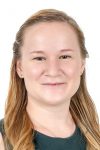By returning facilitators Adrian Stagg and Emma Power from the University of Southern Queensland!

During Open Education Week, the coffee course ‘Open Educational Practice: An Introduction’, introduced OER and some of the foundational considerations to ‘adopting’ open education. In this upcoming course, you’ll explore some of the deeper issues surrounding open education; specifically, practical decisions and questions that should be asked when developing, reusing, and collaborating on open education activities. Each day the facilitators will provide stimulus for reflection and group discussion, as well as a synthesis of the previous days’ discussion.
Course Dates
This course ran from Monday, 23 October to Friday, 27 October 2017 through this blog but is accessible online to anyone interested. There are 5 blog posts that will take about 10-15 minutes to work through.
Modules
- Day One: From Resources to Practice: why ‘mere access’ isn’t enough. We’ll cover the concepts of Open Educational Resources (OER), and Open Educational Practice (OEP) as a way of showing that openness is more than just making content. We’ll consider the role of open teaching practices, open assessment, and the very practical elements of working in this way. Participants will have the chance to share their experiences, and reflect on how their own version of open practice would work.
- Day Two: ‘I’ll know it when I see it’, or, usefully defining quality in openness. One of the core criticisms levelled against openness is that ‘you get what you pay for’ – inferring that free resources and open practices are only shared when they can’t be commercialised. Today, we’ll discuss a range of emerging issues about open quality, and the activities worldwide that seek to address and guide quality practice.
- Day Three: Assessment in an open world: beyond the disposable assignment. Open educational practice provides affordances that are not present in a closed environment, especially in regards to assessment. Drawing on successful global examples, we’ll not only consider how openness potentially transforms assessment, but what this means for a ‘university education’. Are there elements of open assessment that you can re-purpose in your own practice?
- Day Four: Designing for reuse: PDF and the open practitioner. If the most powerful aspect of openness is the ability to share, reuse, and, re-purpose, how do we support this practice? Today, we’ll cover issues of access and reuse, and how you can design educational materials and experiences that encourage others to reuse.
- Day Five:‘Nothing new’ or radical reality? Putting openness into practice. As the course concludes, we’ll reflect on the topics of the previous four days and bring them together in a ‘Potential Plan’. Participants will be guided in assessing their own practice and identifying areas for potential OEP. We’ll also support this day with a synchronous online event, so bring your coffee (or beverage of choice) and meet the wider community.
Facilitators
 Adrian Stagg is the Manager (Open Educational Practice) for the University of Southern Queensland. His career has included over 14 years in both public and academic libraries, followed by 7 years in positions as a Learning Technologist and eLearning Designer. Adrian holds a Master of Applied Science (Library and Information Management) from Charles Sturt University, and he is now a PhD candidate at the University of Tasmania researching the Australian practitioner experience in the reuse of Open Educational Resources (OER). He also has an interest in the role of educational policy and openness. See Adrian’s publications.
Adrian Stagg is the Manager (Open Educational Practice) for the University of Southern Queensland. His career has included over 14 years in both public and academic libraries, followed by 7 years in positions as a Learning Technologist and eLearning Designer. Adrian holds a Master of Applied Science (Library and Information Management) from Charles Sturt University, and he is now a PhD candidate at the University of Tasmania researching the Australian practitioner experience in the reuse of Open Educational Resources (OER). He also has an interest in the role of educational policy and openness. See Adrian’s publications.
 Emma Power is a research assistant for the Pro-Vice Chancellor’s Office (SILS), at the University of Southern Queensland. Her Bachelor of Science and Master of Counselling qualifications have influenced her work as researcher for the 2015 to 2017 Open Educational Practice (OEP) Grants offered by USQ, as she is particularly interested in qualitative interviewing and research ethics. Her OEP Grants research is centred on investigating and understanding the experiences of academic staff engaging with OEP and creating Open Educational Resources (OER). See Emma’s publications.
Emma Power is a research assistant for the Pro-Vice Chancellor’s Office (SILS), at the University of Southern Queensland. Her Bachelor of Science and Master of Counselling qualifications have influenced her work as researcher for the 2015 to 2017 Open Educational Practice (OEP) Grants offered by USQ, as she is particularly interested in qualitative interviewing and research ethics. Her OEP Grants research is centred on investigating and understanding the experiences of academic staff engaging with OEP and creating Open Educational Resources (OER). See Emma’s publications.
Technology-Enhanced Learning in Higher Education Certificate
Go here to learn more on getting recognised for your participation in coffee courses (ANU Staff only).
All are welcome
We welcome all staff, including tutors, demonstrators, professional staff, and academics at the Australian National University to join us, as well as colleagues at other institutions.
Questions?
Please feel free to contact: clt@anu.edu.au with any questions.
